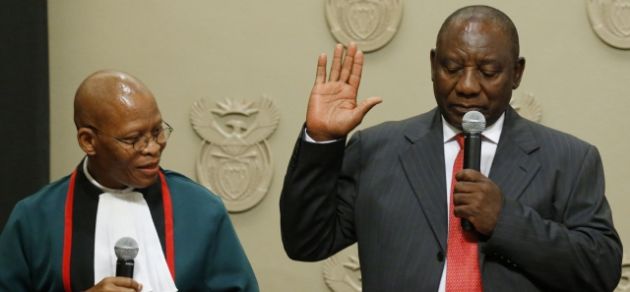Last week in South Africa, Milusi Gigabe (now former Finance Minister) delivered the 2018 Budget Speech, which was well received by the investment community, primarily because it aims to address the budget deficit. Here are the important take-aways:
- Addressing the Budget Deficit: The budget deficit stands at R48.2 billion. The 2018 budget aims to reduce this deficit by raising tax revenue by R36 billion and reducing expenditure by R85 million over the next three years.
- Plans to reform State-Owned Enterprises to improve efficiency of government spending.
- Increased spending in the areas of education, protecting the vulnerable, health services and investing in enablers for economic participation with the view to increasing economic growth, reducing unemployment, inequality and poverty.
- Raising the tax revenue in the following ways:
- VAT increases from 14% to 15%
- Adjustments to tax brackets to protect low income earners from the impact of the VAT increase.
- Luxury goods tax increases from 7% to 9%
- Fuel taxes increase by 52 cents per litre
- Alcohol and Tabaco taxes increase by 6%-10%
- Company’s tax has remained unchanged as South Africa seeks to boost investment and create jobs.
- Free tertiary education will be given to qualifying individuals.
All in all, Gigabe delivered a well thought-out budget during tough economic times which aims to increase revenue and reduce costs in a reasonable manner, while shielding the poorest households from effects of the increased VAT and spreading the burden wider than the working class.
It is hoped that the plan will be well executed and will achieve its ambitious objectives.
In the days following the budget speech, new president Cyril Ramhaposa has already made sweeping changes to his cabinet, appointing new ministers and reshuffling others. This is largely seen as a good sign in the attempt to reform state institutions and tackle corruption and inefficiency.
Nhlanhla Nene, as the newly appointed Finance Minister, will now be tasked with executing this plan in the coming years.
Other notable changes to the cabinet include:
| IN | OUT | MOVED |
| Deputy President: David "DD" Mabuza | Mosebenzi Zwane (mineral resources) | Home Affairs: Malusi Gigaba |
| Finance: Nhlanhla Nene | Lynne Brown (public enterprises) | Communications: Nomvula Mokonyane |
| Mineral Resources: Gwede Mantashe | Joe Maswanganyi (transport) | Energy: Jeff Radebe |
| Public Enterprises: Pravin Gordhan | Des van Rooyen (cooperative governance and traditional affairs) | Higher Education: Naledi Pandor |
| Presidency (Planning, Monitoring and Evaluation): Nkosazana Dlamini-Zuma | Faith Muthambi (public service and administration) | Human Settlements: Nomaindia Mfeketo |
| Tourism: Derek Hanekom | David Mahlobo (energy) | International Relations: Lindiwe Sisulu |
| Cooperative Governance and Traditional Affairs: Zweli Mkhize | Hlengiwe Mkhize (higher education) | Police: Bheki Cele |
| Transport: Blade Nzimande | Fikile Mbalula (police) | Public Service and Administration: Ayanda Dlodlo |
| Nkosinathi Nhleko (public works) | ||
| Bongani Bongo (state security) |

